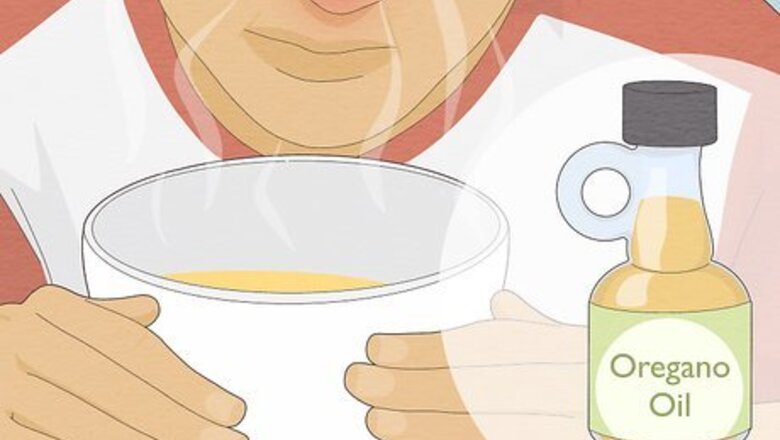
views
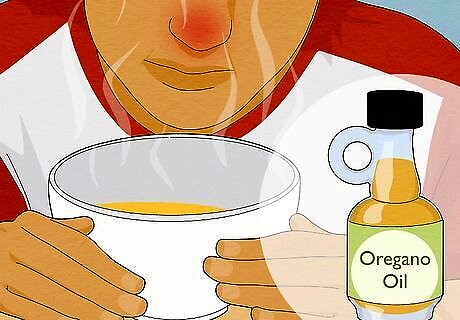
Fight digestive and sinus infections with oregano oil. Take oregano oil by mouth as directed to address digestive issues including some forms of food poisoning. Inhale oil directly to reduce and possibly eliminate the impact of a sinus infection. While some people think oregano oil has a positive effect, there have been no published trials that support its use. Pour oil into a ceramic mug or small glass bowl. Heat in the microwave (or in a pan on the stovetop) until oil is simmering. Hover over the mug or bowl and cover your entire head with a towel. Keep towel open toward mug or bowl. Breathe deeply and inhale oil--keep eyes closed to avoid irritation.
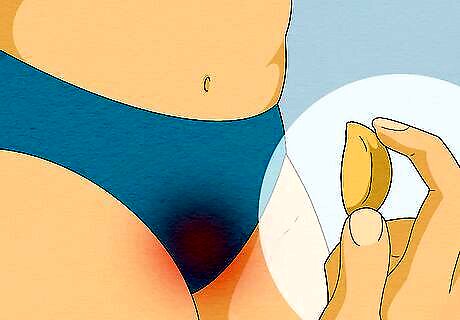
Kill the common cold and other common bacteria, yeasts, parasites and viruses with garlic. Considered to even fight MRSA, garlic is the age-old remedy for a variety of ailments. Although some studies support the use of garlic for its therapeutic effects, more research needs to be done to determine whether it is effective.
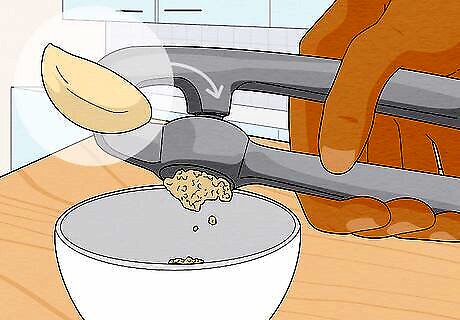
Crush one peeled clove of garlic in a garlic press. Make sure you do this over a bowl or paper towel to catch any liquid. Mince crushed garlic well with a knife and allow to stand for 5 minutes before consuming.
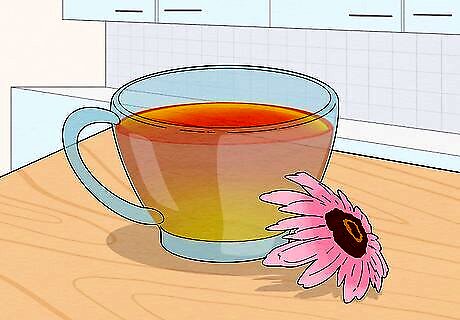
Reduce the duration of the common cold with Echinacea. A recent study showed that participants reduced the average duration of their cold by 26%. Always check with your doctor before trying any new supplements. Take 3 doses of Echinacea during cold and flu season to reduce the likelihood of getting sick and/or shortening the duration. Drink tea with Echinacea if you prefer over supplementation.
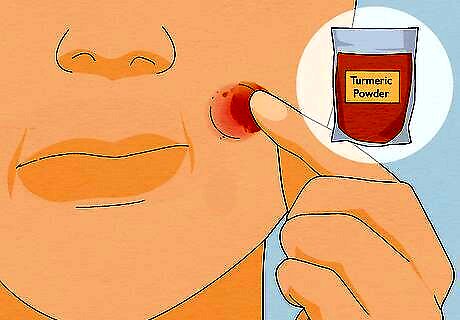
Defend against MRSA and other skin-borne infections with turmeric. When applied directly to infected cuts or boils turmeric acts as a powerful antibacterial agent. Although some studies support the use of turmeric, more research needs to be done to determine whether it is safe and effective. Combine 2 parts turmeric with 1 part distilled water. Mix well to form a paste. Slather paste over wound and allow to dry.
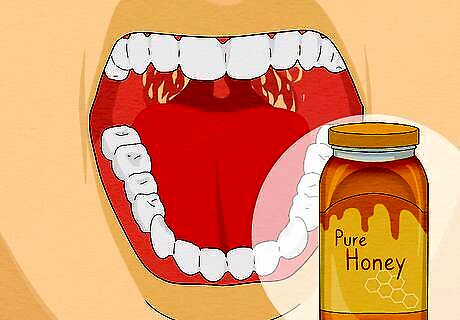
Halt infections like strep and infections of the skin with honey. Apply directly to infected skin and allow to sit on the skin. Do not feed honey to children younger than 12 months.















Comments
0 comment